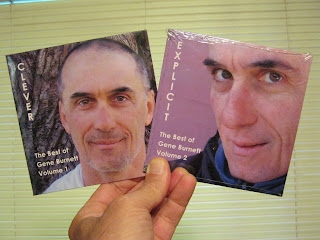Or Combat Training?
When I decided that I wasn't committed to real time combat training I
hesitated to call what I was doing "martial arts". But when I looked
at what I was doing, it still involved kicking, punching, deflecting, timing,
centering, targeting, pushing, pulling, dealing with physical pressure and so
many other things that are "martial" in the sense that they pertain
to fighting.
I thought, Well, even though I'm using martial training games primarily
for health and personal development, I can strike way harder and faster than I
ever could before I learned this stuff, it certainly involves martial
components and attributes, it is useful for "self-defense" in the
sense of dealing with the physical world, gravity, and time...And it might even
"work" in physical encounters with average untrained but potentially
threatening people.
I was hard pressed to call it a dance or just a health art. Dancing is
very presentational, expressive of personal emotion, and does not usually
pertain to things like punching and kicking...so I decided to compromise and
call it "martial training" or "martial yoga" to
differentiate it from "combat training" or real time, real intensity,
fight training. Compared to some T'ai-Chi teachers, I'm very martial. Compared
to others, hardly at all. I know it's not an ideal compromise but it's one I
can live with.
I certainly do not tell my students that I'm going to teach them how to
fight. I tell them right from the outset that we are going to learn about
components of fighting but at slower speeds and lower levels of intensity. I
tell that we'll be using martial training games to develop better balance in
all kinds of ways. I tell them that what I show them will be a good posture and
movement foundation for going further into combat should they every want to,
but that they would have to find a different teacher should they go that
direction.
Actually, very few people come to me wanting to learn how to fight. Most
of them are out of touch with their bodies, have no sense of themselves in
space, have no ability to push or pull or even know where their centers or boundaries
are. Not to mention issues like bad posture, muscle tension, emotional blocks,
tight breathing, poor balance...I really like helping regular people get a
handle on this stuff. Some of them are more interested in the martial side of
the equation and we go into more of the partner work. A few want to go further
into more combat related stuff and when they do, I send them off in search of
teachers who can help them do that and with my blessings.
There are also lots of things that work in different life arenas. I'm
proud and happy to be doing what I'm calling "martial yoga"...I do
forms, partner work, some structured and some improvised, but all with an eye
towards maintaining, while it is being challenged, the essential T'ai-Chi
principle that I call "unforced balance". I have core general
principles that guide me as well as specific forms, exercises and training
games to help me understand and apply them.
To me, the main difference between martial yoga and combat training is
the arenas where the principles are being tested and how deeply they are being
tested. I test the hell out of my T'ai-Chi, I just don't test it in martial
combat. What I do might be useless in a street fight but it is plenty useful to
me in many other ways that have been just as life-saving.
There are plenty of combat experts who are not so good at staying
married, or being happy, or taking care of their health, or balancing their
checkbooks, or expressing emotions, or being good friends, or playing the
guitar. And I can still respect and admire these people. They've just chosen to
apply their principles in certain areas. We can romanticize the idea of the
enlightened master who applies the deepest principles to every single area of
life equally, but I've never met anyone even close to doing that.
There's a tendency to downplay or ridicule people who choose to apply
their principles in arenas that we don't. For instance people who train for combat may say positive things about
people who do martial arts for health and fitness, but sometimes I can feel an
underlying vibe of disrespect or dismissiveness. Likewise, people who train for
health might give respect to people who train for combat but again there can be
this underlying vibe of judgment against the violence involved.
In reality we all pick and choose where and how deeply to apply these
principles. None of us has unlimited time and talent to study and apply
everything everywhere. I just see it as differing levels and areas of application,
all of which have value. We can't study every grain of sand on the beach, but
we can study the ones that call to us and admire others who are called to study
different ones.
I do think that without some free-form pressure testing, whether it be
daily life, combat, or both, the arts tend to be more theoretical than
practical. But there are many ways and levels to pressure test. I think it's up
to every practitioner to decide how far to test what they're doing. And I think
it's a very good idea to be as honest as you can with yourself and others about
where you train and apply these principles and how deeply, as well as where you
don't or haven't yet.


